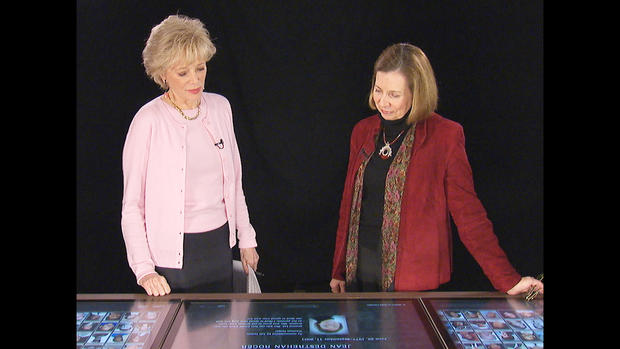The 9/11 museum's most agonizing decisions
How do you convey the horror of 9/11 without making it unbearable? Memorialize a day most of us wish we could forget? Those questions were at the heart of discussions about the National September 11 Memorial Museum, which opened last year at Ground Zero. And, as Lesley Stahl found in the story in the video player above, answering them was anything but easy.
"Was absolutely every single tiny little thing an argument?" Stahl asked a group of 9/11 victims' family members who served on the museum's board.
"There were lots of issues," one replied. "Oh boy," said another, "lots, lots."
Should the museum, for instance, include voice mail messages left by victims for their loved ones during the attacks? Or would they be too painful to hear? One adviser told Museum Director Alice Greenwald to think of the recordings as a form of human remains.
"What he said -- and I've never forgotten it - is that sound can be a more emotional form of communication because you hear the timbre of the human voice," she said.
A similar question arose about displaying photographs of those who jumped from the burning towers.
"You never want to have to see that, someone a hundred stories up, a thousand feet in the air, having to make that kind of choice," said Museum President Joe Daniels. But "there's a very strong feeling that this was a part of the story, that a group of people from this group, al Qaeda, put innocent people in a position to have to do that."
If the terrorists were part of the story, should they be part of the museum? That was another tricky debate. Some victims' family members felt the perpetrators' pictures didn't belong on such hallowed ground; others felt they had to be part of the museum.
"It was absolutely important to point fingers," said Anthoula Katsimatides, a museum board member whose brother John died in the attack. "We had to express who did this to our loved ones."
Katsimatides knows the museum will serve an important function in the years to come. "We are worried about the children who don't remember 9/11," she told Lesley Stahl. "And this is the way to tell exactly what happened to future generations so no one ever forgets."
